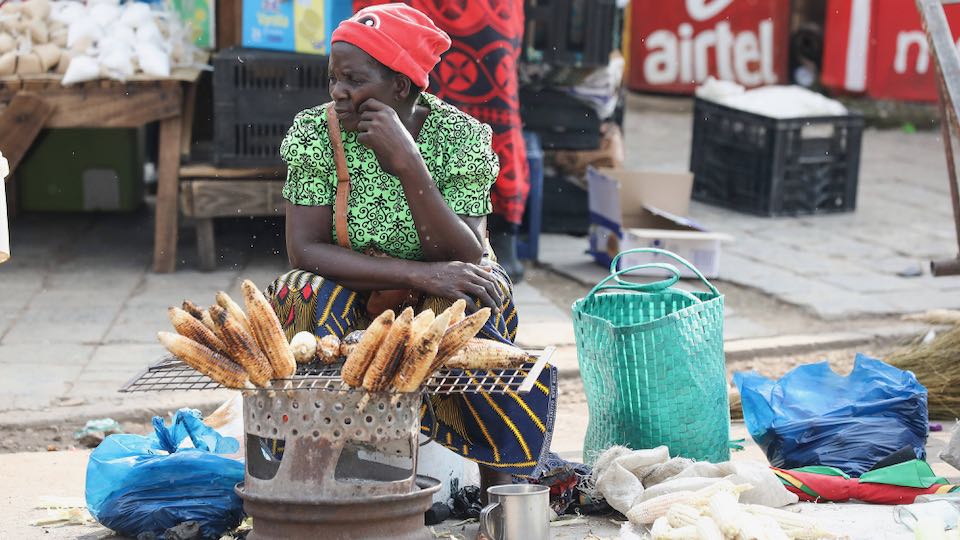Malnutrition affects one billion adolescent girls and women

Around the world, adolescent girls and women are particularly affected by malnutrition. More than one billion adolescent girls and young women worldwide suffer from the consequences of malnutrition, nutrient deficiencies and anaemia. This is according to a new report published by the UN Children’s Fund UNICEF on the occasion of International Women’s Day on March 8. Of the 12 countries where the food situation is most precarious, 6.9 million pregnant and lactating mothers and adolescent girls lack sufficient food – up from 5.5 million in 2020.
In the context of the current food crisis, adolescent girls and women in low- and middle-income countries are particularly vulnerable, he said, with 68 percent of those affected by underweight and 60 percent of adolescent girls and women with anaemia living in South Asia or sub-Saharan Africa. The countries with the most difficult nutritional situations are currently Afghanistan, Burkina Faso, Chad, Ethiopia, Kenya, Mali, Niger, Nigeria, Somalia, Sudan and South Sudan, as well as Yemen.
Among other things, malnutrition weakens their immune systems and increases the risk of life-threatening complications during pregnancy and childbirth.
In the face of global crises and conflicts, UNICEF sees too little and too slow progress in the nutrition situation of adolescent girls and women. “Women’s right to nutrition has been overlooked and undervalued for far too long. It is high time we put the nutrition of women and girls at the centre of the global development agenda, backed by political commitment and resources,” UNICEF urges.
The report covers adolescent girls and women aged 15 to 49. It draws on malnutrition data from 190 countries, covering 90 percent of adolescent girls and women worldwide.
Drivers of inequality
Women were disproportionately more affected by food insecurity than men, the report said, with the gender gap more than doubling between 2019 and 2021. 49 million more adolescent girls and women faced food insecurity than men in 2019, up from 126 million in 2021.
“Our research in Eastern and Southern Africa found that up to four in five pregnant and breastfeeding women were food insecure following the pandemic,” UNICEF said.
Food insecurity also exacerbates gender inequality in other areas, it said, with the potential for learning, wages and life chances of adolescent girls and women reduced by malnutrition.
A generational problem
Nutritional deficiencies are often passed down through generations, according to UNICEF’s report, "Undernourished and Overlooked". Malnourished children are found in the same regions where women also lack nutrition, it said. Being underweight and having a short stature in the mother led to stunting and deficiencies in young children. About half of the world’s early childhood stunting occur in the 500 days between conception and 6 months of age.
About three-quarters of all low-birth-weight infants and children with stunted growth live in South Asia and sub-Saharan Africa, respectively.
Development stagnates
Conflict, climate change, poverty and economic crises also affect women more than men. UNICEF predicts, “The worsening impact of global and local crises will further worsen the nutrition situation of adolescent girls and women in 2023.”
Progress in nutrition for adolescent girls and women is too slow and at risk, he said. In no region, so far, does it look like the World Health Organization’s (WHO) global targets for 2030 will be met. By then, anaemia in adolescent girls and women should be reduced by half and underweight in newborns by 30 percent.
Since 2000, the proportion of adolescent girls who are underweight has not changed (8 percent) and has decreased only slightly for women (from 12 to 10 percent). The proportion with anaemia remained high at 30 percent, he said. More than two-thirds of adolescent girls and women worldwide suffer from micronutrient deficiencies.
UNICEF is calling on governments to do more to ensure adolescent girls and women have access to nutritious, affordable food. It also says discriminatory gender-based social norms in this context must be eliminated. (hcz)